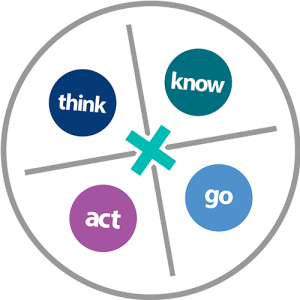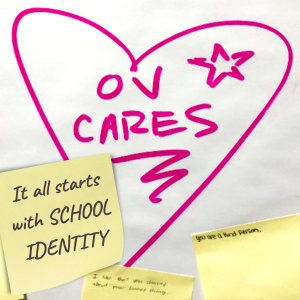Specific dates hold meaning for us because of memorable events that took place on them. Year after year, we are compelled to recognize these dates because they hold a space for both celebration and historical stocktaking—a moment in time to commemorate events that have shaped who we are. This winter, I am giving pause to reflect back over 10 years of directing the AP Course Audit (APCA).
I have spent the last 12 years at EPIC convening higher ed faculty to talk about the knowledge, skills, and abilities they want students to have when they come into college-level courses—what it takes for students to be college-ready from the perspective of what the student knows or is able to do in a particular discipline. And it is from this perspective that I have heard educators from across the country stress the value of curriculum alignment or integrated pathways. Whether aligning curriculum to a set of standards or to preceding and succeeding curriculum, higher-order learning requires a level of curricular coherence that can only be achieved through collaborative curriculum development and revision.
A strong exemplar of this work is the AP Course Audit. On January 23, 2007, the College Board launched the audit of written AP curriculum used in all high schools worldwide. With the hindsight of controversy around the Common Core, APCA is truly groundbreaking in that it is the first and only national and comprehensive course review of its kind in the history of U.S. education.
EPIC designed, implemented, and manages this audit process, and as we opened the audit last week for its 11th academic year, I feel compelled to take stock of our lessons learned as well as our achievements at this remarkable 10th anniversary!
But first, what does it mean to audit AP curriculum worldwide? On its most basic level, it means that teachers (with school administration approval) submit their syllabi into an online system through which trained university faculty use expert judgment to validate the coverage of all AP standards as set forth by the College Board. You can search for qualified courses published at any school worldwide through the online AP Course Ledger.
The College Board employed EPIC to conduct this audit because EPIC is expert in comprehensive curriculum review methods that ensure quality checkpoints but avoid the pitfalls of holistic judgments. In essence, EPIC is the expert to provide independent validation of AP curriculum being used in schools.
Using its expertise, EPIC developed a process specifically designed to allow AP teachers the freedom to fulfill curricular requirements in creative and innovative ways in the classroom while still ensuring that every course that ultimately meets all AP standards is successful in completing the audit process.
In line with the creative freedom supported by AP is the fact that APCA employs a success-based model where there is a step in this process for high school teachers to actually have a one-on-one coaching session with postsecondary reviewers.
So, what have we learned at our 10-year anniversary mark?
We’ve learned that instructor engagement is the key to success. In fact, the College Board names this collaboration as the foundation to the AP program in their 10th Annual AP Report to the Nation: “The collaboration between college faculty and AP teachers lies at the core of AP, ensuring rigor, relevance, and fairness. These groups work together to develop, deliver, and evaluate AP.” As such, we’ve worked with higher ed faculty to develop the subject-specific scoring guides against which hundreds of higher ed faculty rate high school syllabi to support teachers in aligning curriculum to AP standards.
Though APCA demonstrates partnership on a grand scale, in every instance partnership is two or more people connecting and collaborating toward a common goal. And what we know from our work in other areas, such as the support for integrated pathways for CTE programs, is that the old adage of college instructors telling students to “forget everything you learned in high school” forces students to make connections necessary for learning versus truly supporting student learning by building on what they have already learned.
The concept of college and career readiness is not new, but somehow most educational systems remain focused mostly on teachers developing the learning activities and content for their course in isolation of other teachers and of local industries. This requires students to do all the work in figuring out how to connect what they are learning in one course with what they’re learning in the next course and what they’ll need to know and be able to do in the workforce. This deficit in ensuring that students have clear, coherent, and relevant pathways through and out of high school undermines every student’s opportunity for success, but especially those in underserved populations and struggling schools.
We all know of students who are self-motivated and can make the connections from one course to the next to their future professions. But we should not, cannot, expect that of every student. Putting the onus on the student to make cross-course connections deflects our responsibility to prepare students for life and prevents teachers from supporting the higher-order learning process of connecting, analyzing, and synthesizing content across disciplines and with future work goals.
Developing integrated pathways maps out the progression of knowledge, skills, and abilities that will not only make courses relevant to students but also will ensure that what they are learning is relevant to the industries they’ll be entering when they complete their educational careers.
At EPIC, we firmly believe that our schools and our society have the responsibility to prepare students for life, not just tests. In today’s global, connected world, information itself is available 24/7. In the end, it’s no longer about what you know, but what you can do with this knowledge. And programs like the AP Course Audit support our educational systems in creating the talent supply chains necessary to effectively power our future!
 Kirsten Aspengren is Inflexion’s Director of Curriculum Alignment. She has been with Inflexion since 2005 and led the development and execution of the AP Course Audit.
Kirsten Aspengren is Inflexion’s Director of Curriculum Alignment. She has been with Inflexion since 2005 and led the development and execution of the AP Course Audit.




